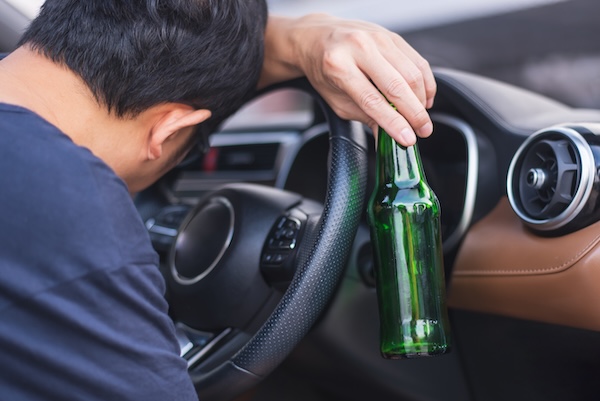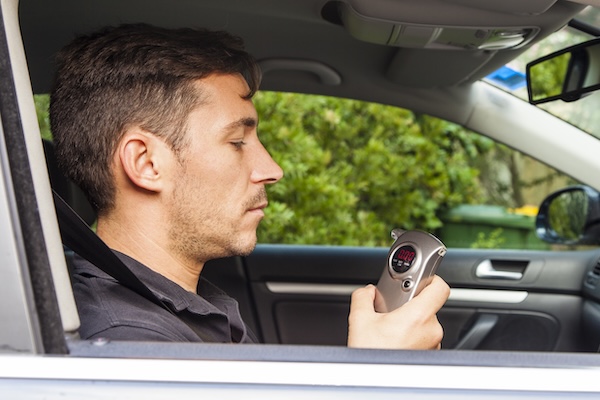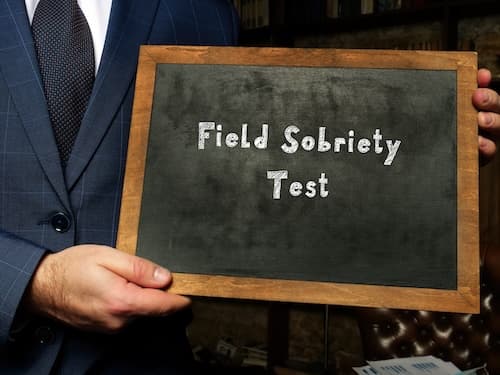DUI Without Driving: Understanding Physical Control Laws in Western North Carolina
When most people think of a DUI (Driving Under the Influence), they immediately picture a person behind the wheel of a vehicle, intoxicated by alcohol or drugs. It’s a scenario that’s familiar to many, and often the reason DUI laws exist — to prevent impaired driving and ensure public safety on the roads.
However, what if we told you that it’s possible to be charged with a DUI without actually driving the vehicle at all? This might sound surprising, but physical control laws in North Carolina and other states allow for DUI charges to be brought even in situations where the vehicle is not in motion.
In this post, we will explore the concept of physical control in DUI cases, an often misunderstood aspect of DUI law. Specifically, we’ll examine how it can apply in Western North Carolina and why it’s important to understand this legal principle whether you’re in Asheville, Mars Hill, or any other area in NC.
Even if you weren’t driving the vehicle, you could still face criminal charges for being in a position to drive, such as sitting in the driver’s seat with the engine running or having the keys in your possession. Asheville DUI Lawyers can help you understand the legal consequences of such a situation and guide you through the DUI defense process effectively.
Throughout this blog, we’ll explain how these laws work, what they mean for drivers, and how to protect yourself if you’re charged with a DUI in North Carolina.
What Does “DUI Without Driving” Mean and What Is Physical Control in Western North Carolina?
In North Carolina, you don’t have to be actively driving your vehicle to be charged with DUI. The key factor in these cases is physical control. This means that even if you weren’t driving, you could still face DUI charges if you were in a position to operate the vehicle — essentially, if you had the ability to drive it.
In Western North Carolina, physical control is generally defined by whether a person has immediate access to the vehicle and the ability to operate it. This could include being in the driver’s seat, having the keys within reach, or being in a position where you could start or move the vehicle. The law doesn’t require the vehicle to be moving, only that the person could potentially drive it.
A police officer will assess several factors to determine whether you were in physical control of the vehicle. If you are found in a position where the officer believes you could operate the vehicle — even if it’s not moving — you could be charged with a DUI under North Carolina law.
It’s important to understand that physical control laws are subject to interpretation and can vary based on the officer’s judgment. That’s why having an experienced attorney familiar with the laws in Western North Carolina is essential to assess the specifics of your case and build an effective defense.
Circumstances That Can Lead to a DUI Charge
In North Carolina, you don’t have to be actively driving to face a DUI charge. Physical control of the vehicle is a key factor, and there are several situations where you could still be charged with a DUI, even if you weren’t behind the wheel. Here are some common circumstances where a DUI charge could apply:
- Sitting in the Driver’s Seat with the Engine Running: If you are found sitting in the driver’s seat with the engine running, even if you’re not moving, you can still be charged with a DUI due to physical control laws.
- Being Found in a Parked Car: If you’re in the driver’s seat of a parked car with access to the keys, you may be charged with DUI, even if you were not driving at the time.
- Leaving the Engine Running While Outside the Vehicle: If you leave the engine running and are outside the vehicle, you could still face DUI charges if the officer believes you were in physical control of the vehicle.
- Operating a Vehicle While Impaired (Even if Not Moving): Moving a vehicle even a short distance or attempting to start it while impaired can result in DUI charges, even if you weren’t driving it down the road.
- Refusing a Field Sobriety Test or BAC Test: Refusing to take a field sobriety test or BAC test when requested by a police officer can result in implied consent penalties and may be used against you in court.
- Being in a Private Parking Lot or Driveway: DUI charges can still apply even if you’re parked in a private property area like a driveway or parking lot if the officer believes you were in physical control of the vehicle.
- Possession of Alcohol or Drugs in the Vehicle: If you have open containers of alcohol or controlled substances in your car and are found impaired, you could face DUI charges, regardless of whether you were driving or not.
What Should You Do if Arrested for DUI Without Driving?
If you’ve been arrested for drunk driving or DWI charges without actually driving, it’s important to take immediate action. The first step is to contact a skilled criminal defense lawyer. A seasoned attorney can help you understand the charges you face, review the evidence against you, and discuss possible defenses to the case.
Contact a Skilled Criminal Defense Lawyer
The first step is to reach out to a skilled criminal defense lawyer. A seasoned attorney can guide you through the legal process, helping you understand the charges you face. Your lawyer will review the evidence against you and discuss possible defense strategies to protect your rights.
Examine the Evidence and Officer’s Observations
Your attorney will carefully evaluate the police officer’s observations and the circumstances surrounding your arrest. A key part of your defense may involve questioning the officer’s judgment. Was the officer correct in determining that you were in physical control of the vehicle?
Your lawyer may also challenge field sobriety tests, as these tests can be subjective and sometimes inaccurate. Additionally, your attorney may dispute the results of BAC tests, as blood alcohol concentration tests are not always reliable.
Understand the Legal and Criminal Implications
A criminal defense lawyer will help you understand the legal consequences of your case. Your attorney will explain how the charges could impact your driver’s license, the criminal charges you face, and the long-term effects on your personal and professional life. It’s important to fully understand the potential outcomes so you can make informed decisions moving forward.
Fight for a Favorable Outcome
Whether it’s your first offense or you have a history of convictions, your attorney will work to secure the most favorable outcome for your case. This could include reducing charges or seeking alternative penalties, such as community service or counseling, instead of jail time. Even if you’ve been previously convicted, an experienced lawyer can help minimize the consequences and help you move forward with the best possible resolution.
Challenge the Validity of the Arrest
In some cases, a lawyer can challenge the validity of the arrest. This could involve arguing that the police officer lacked reasonable grounds to make the arrest or that the implied consent laws were not properly enforced. These challenges can strengthen your defense and improve your chances of a positive outcome.
The Role of a Police Officer in DUI Cases
A police officer plays a critical role in determining whether you were in physical control of a vehicle, which is a key factor in DUI cases. When you are stopped or arrested on suspicion of DUI, the officer will assess the situation to see if they have reasonable grounds to make an arrest.
During this evaluation, the officer will consider various factors, including:
- Your location: Are you in the driver’s seat with the keys in the ignition, or is the engine running?
- Signs of intoxication: This could include slurred speech, bloodshot eyes, or the smell of alcohol.
- Field sobriety tests: The officer may ask you to perform a series of physical and mental tests, such as walking in a straight line or following an object with your eyes. These tests are used to assess your coordination and balance.
- Blood Alcohol Concentration (BAC): If a breathalyzer or blood test is administered and shows that your BAC is above the legal limit, it strengthens the officer’s case for DUI charges, even if you weren’t driving.
- Presence of open containers: If the officer finds open containers of alcohol or drugs in the vehicle, it could further suggest that you were impaired and could be charged, even if the car wasn’t moving.
If the officer believes they have sufficient evidence of intoxication, they can charge you with a DUI or DWI, regardless of whether you were driving at the time of the stop. This is because, under North Carolina law, physical control is enough to be considered a violation, even if you were simply waiting in the vehicle or were not actively driving.
Implied Consent Laws and DUI Arrests
In North Carolina, implied consent laws are a critical part of DUI arrests. These laws state that by driving in the state, you automatically consent to submit to a breathalyzer test or blood test if a police officer has reasonable grounds to believe you’re driving under the influence of alcohol or controlled substances.
The Consequences of Refusing a Test
If you are arrested for a DUI and refuse to take a chemical test (either breath or blood), there are immediate legal consequences, including:
- Automatic license suspension: Refusal results in an immediate suspension of your driver’s license, typically for at least a year, regardless of the outcome of the DUI case.
- Increased penalties: If convicted, refusing the test can lead to heightened penalties, such as longer license suspensions and higher fines.
- Use of refusal as evidence: Your refusal to take the test can be used against you in court, with the prosecutor arguing that it shows consciousness of guilt. This can weaken your defense and negatively impact the outcome of your case.
Why Complying with the Test Matters
Submitting to the chemical test can be crucial in defending your case. While the test results could be used against you if they show a high blood alcohol concentration (BAC), complying with the test helps avoid the additional penalties for refusal. It’s important to consult with an experienced DUI defense lawyer before making any decisions about whether to take a test.
Legal Defense for DUI Without Driving
If you’re facing DUI charges in Asheville or anywhere in Western North Carolina, it’s crucial to have strong legal representation to navigate the complexities of DUI law. A former prosecutor turned criminal defense attorney can provide invaluable insight into how the prosecution’s case might unfold and help challenge the evidence against you.
With their experience, they can assess every aspect of your case and create a strategic defense plan tailored to your specific circumstances.
Asheville DWI lawyers and criminal defense attorneys know that even if you weren’t driving, the details of your arrest matter. Factors such as the location of the vehicle, whether the engine was running, and whether you were in a position to operate the vehicle can all play a role in your defense.
Working with a board-certified specialist in DUI defense allows you to develop a strategy aimed at minimizing charges, reducing penalties, or securing the most favorable outcome possible in your case.
Potential Consequences of DUI Without Driving
Being charged with a DUI, even without actually driving, can result in severe criminal consequences. Under North Carolina law, physical control of the vehicle is enough to be charged with DUI, and the penalties can be significant, even if the vehicle was stationary or not in motion.
Immediate Consequences
If you are charged with a DUI without driving, you may face:
- Driver’s license suspension: A DUI conviction can lead to an automatic license suspension, often lasting for months or even years, making it difficult to travel, commute to work, or handle daily activities.
- Hefty fines: DUI fines can add up quickly, ranging from hundreds to thousands of dollars, not to mention additional fees such as those for reinstating your driver’s license.
- Jail time: In some cases, even a first offense can result in jail time, especially if there are aggravating factors such as a high blood alcohol concentration (BAC) or a prior criminal record.
- Increased insurance rates: A DUI conviction can cause your car insurance premiums to rise drastically, costing you more for years to come.
Long-Term Effects on Personal and Professional Life
The impact of a DUI conviction extends beyond legal penalties:
- Employment consequences: Many employers conduct background checks, and a DUI conviction could impact your ability to secure employment, especially in positions where driving is required or when employers have policies against hiring those with criminal records.
- Social stigma: A drunk driving conviction can carry a significant social stigma, affecting your relationships with family, friends, and colleagues.
- Professional licenses: Certain professions (e.g., healthcare, law, education) may revoke or suspend your professional license due to a DUI conviction, further complicating your career.
The Complexity of DUI Cases
It’s important to remember that while the vast majority of DUI cases don’t result in extreme penalties like first-degree murder charges, even a DUI conviction for being charged without driving can be life-changing. You should never assume that a case is “cut and dry.” DUI laws are complex and can vary from case to case, so each situation requires careful examination.
Even if you weren’t driving, being in physical control of the vehicle can still lead to serious criminal charges. The specifics of your case — such as where you were located, whether the engine was running, or whether you were impaired by alcohol or controlled substances — will all influence the outcome.
Consulting a skilled attorney is crucial to navigating these complex issues and working toward the most favorable outcome.
How Asheville DUI Lawyers Can Help
If you’re facing DWI charges in Asheville or Western North Carolina, securing strong legal representation is crucial. Experienced Asheville DUI lawyers are familiar with local laws and have the expertise to guide you through your case effectively.
Many law firms offer a free consultation where they will:
- Evaluate the details of your case
- Discuss your legal options
- Explain the best possible course of action
Choosing a local DUI lawyer ensures a deep understanding of Asheville’s legal landscape and provides the experience needed to handle complex DUI cases with confidence. With their help, you’ll be better equipped to navigate the legal process and work toward a favorable outcome.
Take Action Now: Contact an Experienced DUI Lawyer Today
Being charged with a DUI, especially without actually driving, can be overwhelming. However, with Asheville DUI Guy by your side, you can explore potential legal defenses and work toward the most favorable outcome.
Whether you’re dealing with reckless driving, drunk driving, or DUI cases, it’s essential to have an attorney who understands criminal law and can provide expert guidance and representation.
If you’re facing DUI charges in North Carolina, don’t wait to protect your rights and your future. Contact a local criminal defense attorney today to discuss your case. Call us now at 828-759-5556 for a free consultation and get the help you need.








